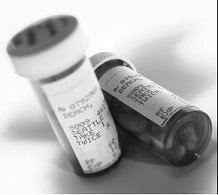Narcissism and Substance Abuse

Pathological narcissism is an addiction to Narcissistic Supply, the narcissist's drug of choice. It is, therefore, not surprising that other addictive and reckless behaviours – workaholism, alcoholism, drug abuse, pathological gambling, compulsory shopping, or reckless driving – piggyback on this primary dependence.
The narcissist – like other types of addicts – derives pleasure from these exploits. But they also sustain and enhance his grandiose fantasies as "unique", "superior", "entitled", and "chosen". They place him above the laws and pressures of the mundane and away from the humiliating and sobering demands of reality. They render him the centre of attention – but also place him in "splendid isolation" from the madding and inferior crowd.
Such compulsory and wild pursuits provide a psychological exoskeleton. They are a substitute to quotidian existence. They afford the narcissist with an agenda, with timetables, goals, and faux achievements. The narcissist – the adrenaline junkie – feels that he is in control, alert, excited, and vital. He does not regard his condition as dependence. The narcissist firmly believes that he is in charge of his addiction, that he can quit at will and on short notice.
The narcissist denies his cravings for fear of "losing face" and subverting the flawless, perfect, immaculate, and omnipotent image he projects. When caught red handed, the narcissist underestimates, rationalises, or intellectualises his addictive and reckless behaviours – converting them into an integral part of his grandiose and fantastic False Self.
The narcissist's addictive behaviours take his mind off his inherent limitations, inevitable failures, painful and much-feared rejections, and the Grandiosity Gap – the abyss between the image he projects (the False Self) and the injurious truth. They relieve his anxiety and resolve the tension between his unrealistic expectations and inflated self-image – and his incommensurate achievements, position, status, recognition, intelligence, wealth, and physique.
Thus, there is no point in treating the dependence and recklessness of the narcissist without first treating the underlying personality disorder. The narcissist's addictions serve deeply ingrained emotional needs. They intermesh seamlessly with the pathological structure of his disorganised personality, with his character faults, and primitive defence mechanisms.
Sam Vaknin

<< Home